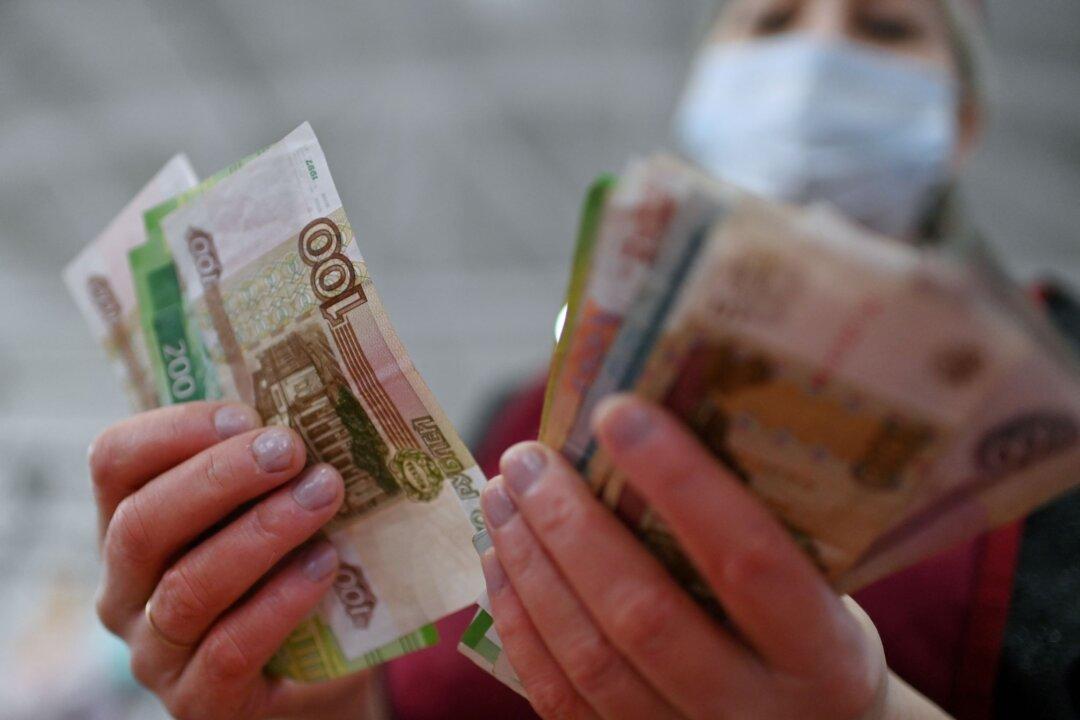The Russian rouble slid more than 15 percent against the dollar and euro at market opening in Moscow on Monday but central bank intervention arrested its fall, after it tumbled to a record low in Asian trade as harsh new sanctions were slapped on Russia.
At 0800 GMT the rouble was trading at 95.48 to the U.S. dollar, down 15 percent from Friday’s close, and at 107.3550 per euro, 15.4 percent lower, with central bank selling of foreign currency set to limit its losses in Moscow trade. It had earlier touched a record low of 120 to the dollar on electronic currency trading platform EBS.





